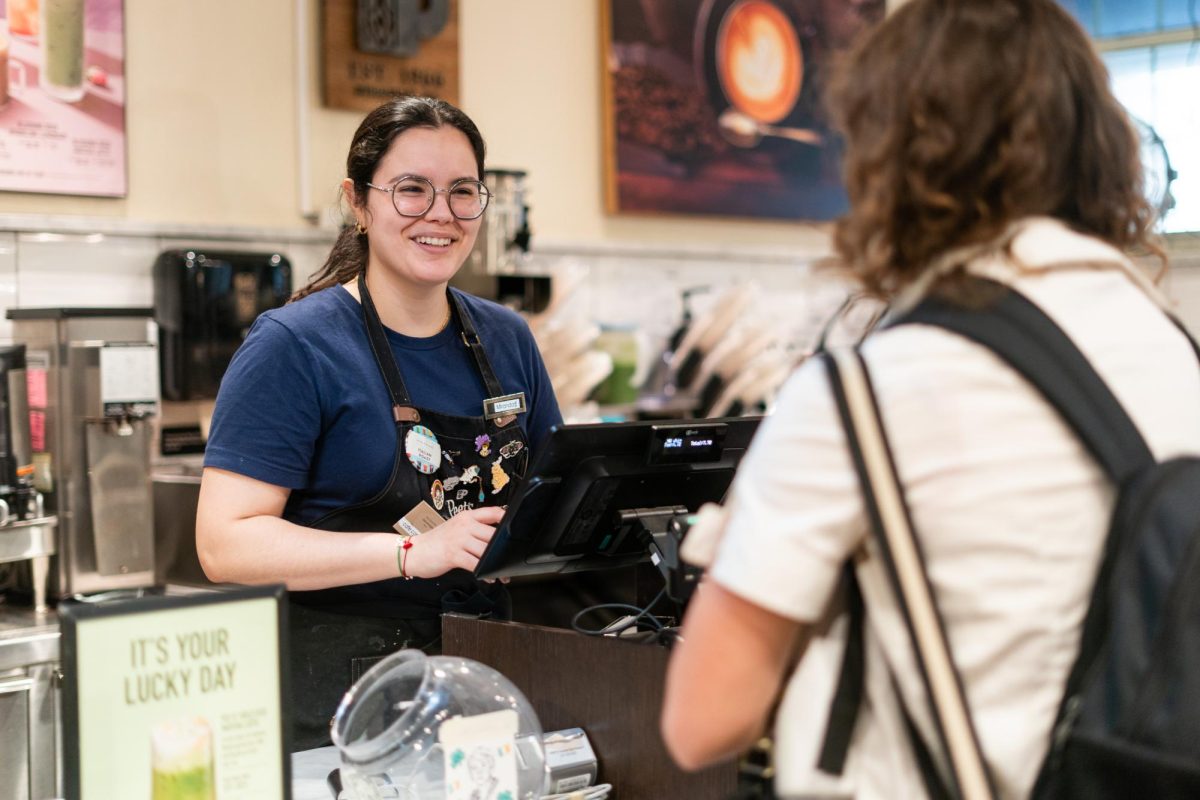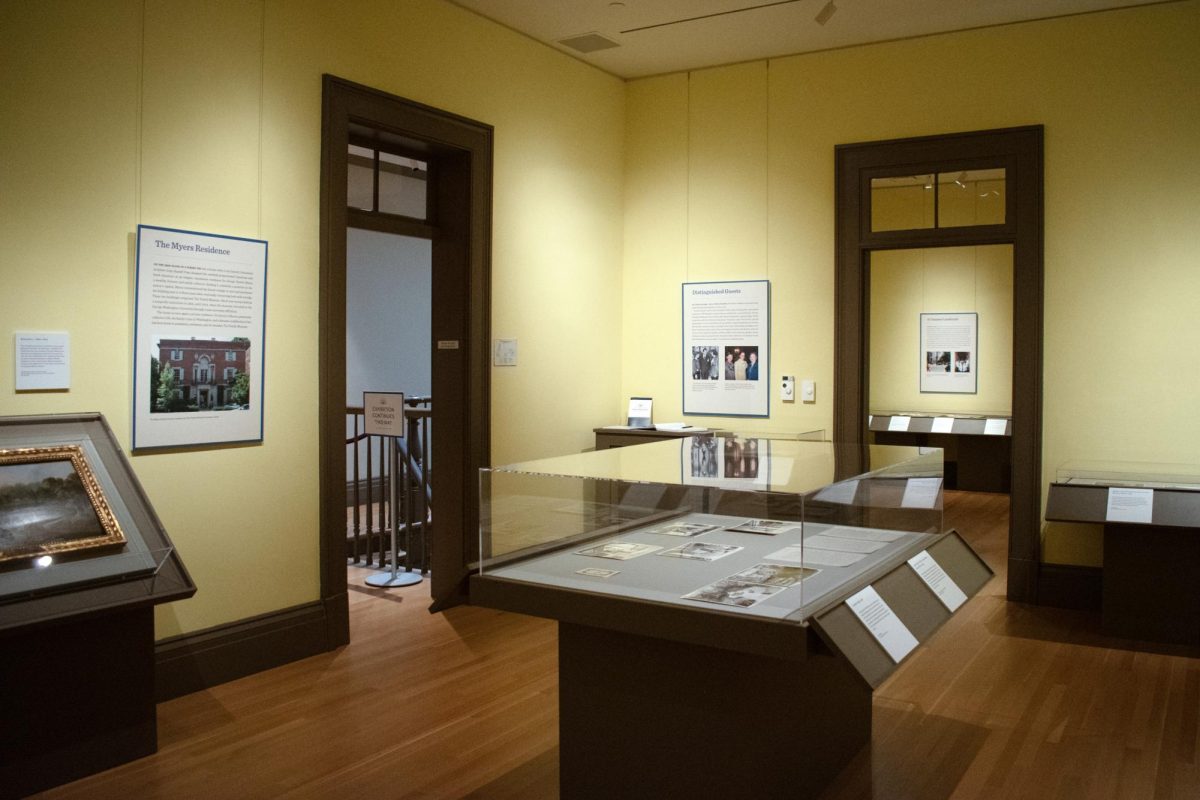[gwh_image id=”1039563″ credit=”Courtesy of Rachel Knopp, Danielle Makous and SJ Bashein” align=”right” size=”embedded-img”]Rachel Knopp and Danielle Makous, tutors for the Petey Greene Program, recruit new members to tutor incarcerated people with the program’s regional director SJ Bashein.[/gwh_image]
Senior Danielle Makous said when she first made the trek out to the Maryland Correctional Institution for Women, she imagined bleak gray walls, concrete and bars on all of the buildings. But instead she found a grassy quad, typical textbooks and students who were eager to learn during their time together – just like her.
A vast majority of Americans have no idea what goes on within the walls of the about 5,000 local jails and state and federal prisons across the country, Makous said. But students in GW’s chapter of the Petey Greene Program, which began in 2015 and pairs students at three area colleges with incarcerated people to tutor, visit facilities and provide GED tutoring around Maryland every week.
Last spring the group had 25 available tutoring spots, but this fall that number almost quadrupled to 91 spots with 35 of the positions currently filled by GW students. Last academic year, tutors spent 426 hours in tutoring sessions and with increased membership they’ll reach even more incarcerated people this year.
Makous, a senior majoring in political communication, said when she joined the program toward the end of her sophomore year she knew the stereotypes of incarcerated people likely weren’t true, but didn’t have any personal experience.
“There’s so much negative framing around incarceration and around people who are put into prison,” she said. “I was eager to have the opportunity to just kind of break down all the shit that I thought I knew, because I didn’t know anything.”
Makous added that the differences between her and the students she tutors are only the zip code they grew up in and their socioeconomic class — not anything related to their character.
“They’re not monsters,” she said. “They are our students.”
The D.C. and Maryland regional program partners with GW, Howard University and the University of Maryland-College Park to place tutors at six facilities, including the Maryland Correctional Institution for Women and county jails in Anne Arundel and Prince George’s counties, to tutor incarcerated people before their GED test.
SJ Bashein, the regional director for the D.C. and Maryland chapter of the Petey Greene Program, said many students, “whether they’d admit it or not,” go into the experience expecting the incarcerated people to be different from them because they are in prison, but that’s “simply not the case.”
Bashein said she is licensed to practice social work in D.C. but hadn’t worked with incarcerated people before she started at the Petey Greene Program about a year and a half ago. Through her education, she said she learned that social workers have a duty to serve underserved populations.
“I thought this is a really, really underserved population, especially because they are totally unseen,” she said. “There’s definitely an out of sight, out of mind concept when it comes to the rights and the lives of people who are incarcerated.”
Bashein said after the tutors complete the mandatory five-part tutor training that she administers, the tutors are ready to go to the facilities and help students complete practice problems for their upcoming GED exams. Depending on the facility, tutors either work with students one-on-one or act as an assistant while a teacher works with a class more formally.
Many of the students in the program complete their GED, but seeing the small achievements every day is more beneficial for the student and the tutor, she added.
“Those are really big milestones of achievement and they definitely happen for our students, but the real beauty of the program is in the really gritty day-to-day,” Bashein said. “Just telling them that they are capable and that you really believe in their abilities can be really life changing for people.”
Rachel Knopp, a senior majoring in international affairs, co-founded GW’s chapter of the program when she was a sophomore.
While the students are all working toward completing their GED, Knopp said it’s more important for them to create smaller victories – like learning a new concept or mastering a certain type of problem – and to encourage students to keep working hard than to focus on a quick path to passing the exam.
“We try to have some sense of accomplishment every time we sit down with them,” Knopp said.
William Jacobs-Perez, a junior majoring in political science and criminal justice who started working with Petey Greene last year, said one of the most rewarding parts of his time with the program has been working side-by-side with students.
“In a lot of senses it’s like the education system has failed these people and they’ve never had positive experiences with education,” he said. “So part of what it’s like being a tutor is giving them a positive education experience, and that experience alone can help.”




